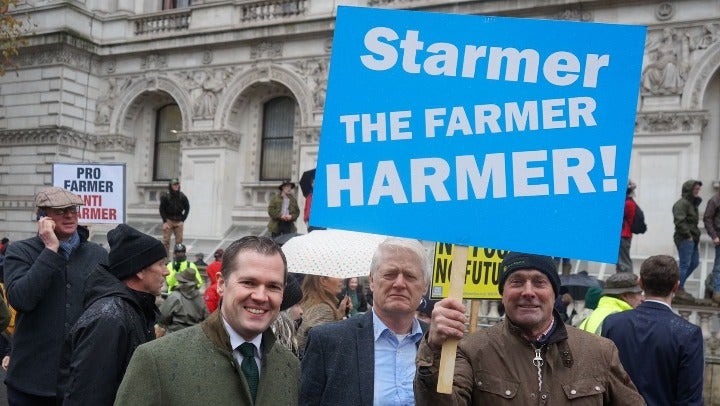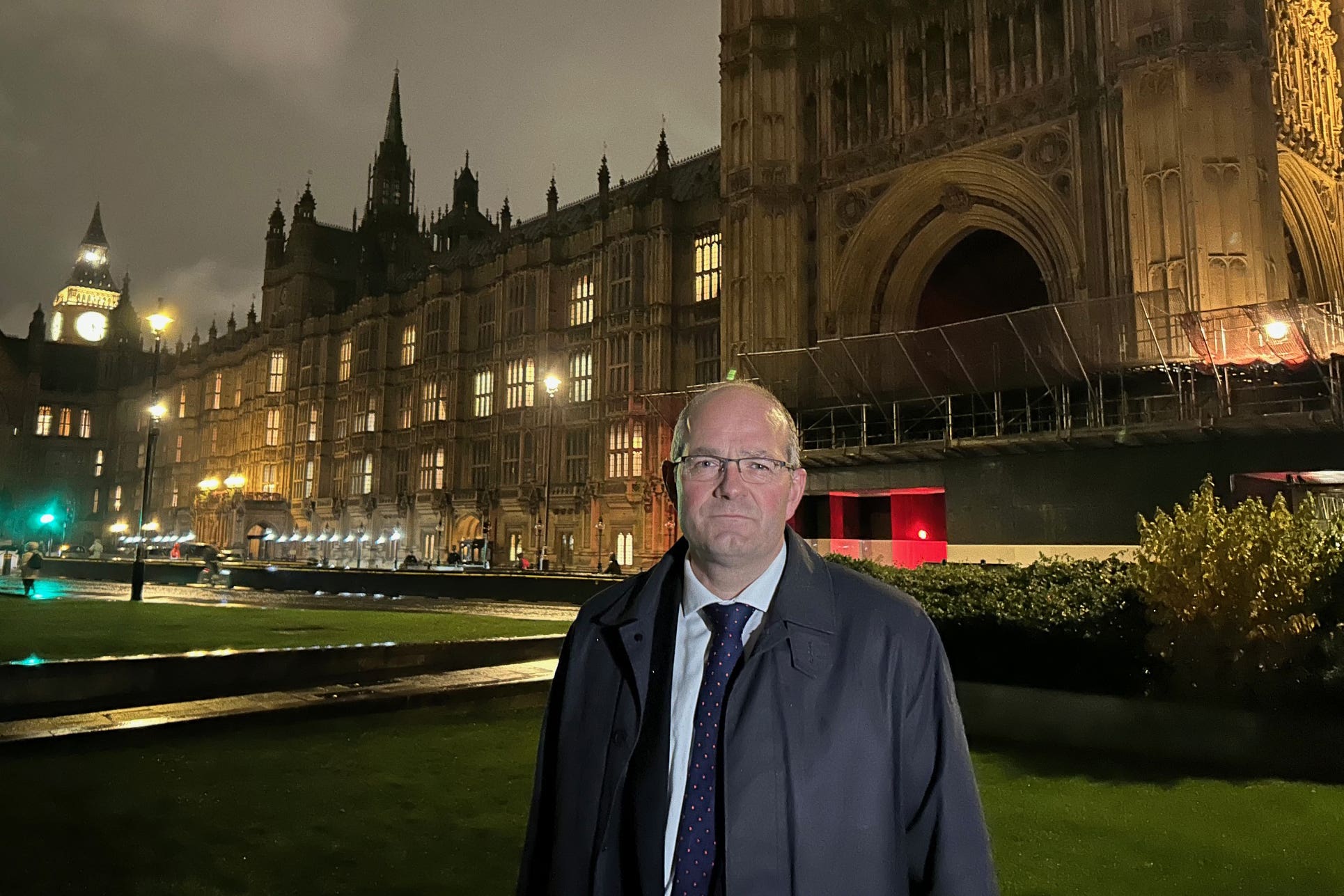Labour could lose three-quarters of its rural seats if a general election was held today, a new poll has suggested, just months after the party swept to power in a landslide election win fuelled by gains in the countryside.
Sir Keir Starmer’s controversial tractor tax and other policies in Rachel Reeves’ October Budget could see the party hold onto just one in four of the seats Labour won in rural areas in July, according to a new survey.
Of the 10 sparse and rural constituencies currently held by Labour, the party might keep just two if an election were called now, a More in Common survey found.
Although it is just one survey and there are likely years before the country goes to the polls again, the National Farmers Union (NFU) warned it suggested Sir Keir had “gravely underestimated the impact” of its family farm tax raid.

The poll also suggested Labour might hold onto just 11 of the 39 rural seats it holds. Overall, of Labour’s 49 rural constituencies, it was suggested the party could lose 36 and hold on to just 13 – a retention rate of just 27 per cent.
The NFU’s warning comes after the UK’s top union leader, TUC boss Paul Nowak, revealed his fears about the impact of the tax raid on small farmers in an interview with The Independent.
The survey highlights the impact on the party of Sir Keir’s decision to end inheritance tax exemptions for farms worth more than £1m.
The tax change means previously exempt farms will be hit with a 20 per cent levy on farming assets worth more than £1m, with critics claiming it will force family farmers to sell up and rip the heart out of Britain’s countryside.
The More in Common survey suggests that, by contrast, Labour could hold onto 215 of its 362 urban seats, a significantly higher retention rate of 59 per cent. And, despite its significantly better performance in urban areas, it still highlights the decline in support for Sir Keir since Labour’s sweeping election win.
Overall, the poll showed Labour could squander its majority if an election was soon, losing almost 200 seats including those of deputy PM Angela Rayner and home secretary Yvette Cooper.
More in Common associate director Ed Hodgson told The Independent: “This year’s general election saw Labour make historic gains among many rural areas that had never voted for them before - and our MRP model shows that in just a few months, Labour has squandered much of the faith that some of these rural voters placed in them.
“There is no doubt that decisions over farmers’ inheritance tax will have resonated more with these rural communities, as will changes to the Winter Fuel Allowance which will hit some of these seats the most given their older populations.
“But more broadly, many rural voters left the Conservative Party and voted Labour for the first time because they felt the Conservatives had become a party that could no longer be trusted to deliver on their promises – in the year ahead, Labour will have to show these voters that they can be trusted, in order to halt the growing perception that our new government simply offers more of the same.”

One rural Labour MP forecast to lose their seat by the poll said it "seems a bit far-fetched four years before an election... but we know we’ve got to turn things around for ordinary families... so as ever, no complacency".
Rural seats that it was suggested Labour would lose include Rhondda and Ogmore, currently held by science minister Sir Chris Bryant, with More in Common forecasting it could be picked up by Nigel Farage’s Reform UK.
Reform could also pick up Doncaster East and the Isle of Axholme, Easington, Bolsover, Newton Aycliffe and Spennymoor, and Normanton and Hemsworth, the poll suggested.
The NFU said the survey results were “unsurprising” and warned Labour has “gravely underestimated the impact of its tax raid on family farms”.
It said the impact goes “far beyond devastating farming businesses themselves… it affects everyone who works on farms, the numerous businesses farms buy from, and those they sell produce to”.
“When a policy rips the heart out of a farm, it also does the same to a rural community, as this polling shows,” an NFU spokesperson told The Independent.
They added: “There is still time for this government to do the right thing and reassess before irrevocable damage is done to our farming sector, our food security, and the wider rural communities farming supports.”
And Mo Metcalf-Fisher, director of external affairs at the Countryside Alliance, told The Independent: “Prior to the election, Labour had built up a fair amount of goodwill in the countryside, but that appears to have rapidly evaporated, not least as a result of the ongoing family farm tax row and the entirely avoidable fallout from that.
“It was a bad political move by Labour, which has left rural people feeling like they aren’t being listened to but it has also cut through with the wider public. Going forward they need to urgently rethink the policy, engage with rural groups and prioritise doing things for the countryside, rather than to it.”
Labour declined to comment.







